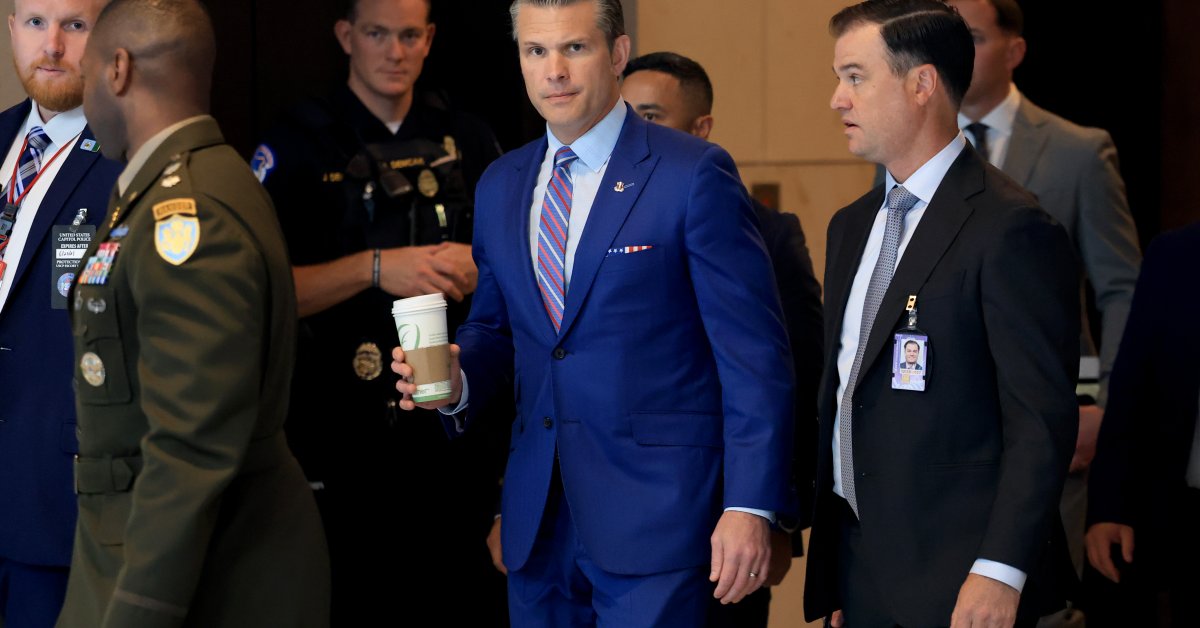Senators emerged from a classified briefing with top Trump Administration officials on Thursday still sharply divided over the effectiveness of last weekend’s U.S. airstrikes on Iranian nuclear facilities, with several Democrats saying the intelligence presented contradicted the White House’s sweeping claims of success.
While President Donald Trump has claimed that the strikes “completely and fully obliterated” Iran’s nuclear program, multiple Democratic senators said the classified assessments they received suggested a more limited impact—one that would potentially set Iran’s program back by months, not years.
“There’s no doubt there was damage done to the program, but the allegations that we have obliterated their program just don’t seem to stand up to reason,” said Senator Chris Murphy, Democrat of Connecticut. “To me, it still appears that we have only set back the Iranian nuclear program by a handful of months.”
Senate Minority Leader Chuck Schumer of New York added: “There was no coherent strategy, no end game, no specific, detailed plan on how Iran does not attain a nuclear weapon.”
“President Trump said that the nuclear stockpile was completely and totally obliterated,” he said. “I did not receive an adequate answer to that question.”
But Republicans emerged from the same briefing more optimistic. Senator Tom Cotton of Arkansas called the strike a “major blow,” citing what he described as catastrophic hits to Iran’s centrifuge infrastructure, uranium conversion facilities, and underground bunkers. Senator Lindsey Graham of South Carolina said Iran had “never been this weak,” though he warned the mission was not the final chapter. “I don’t want the American people to think that this is over,” he said. “It is not over until the regime decides to change their attitude and their behavior.”
The private briefing, delivered by CIA Director John Ratcliffe, Secretary of State Marco Rubio, Defense Secretary Pete Hegseth, and Joint Chiefs Chairman Gen. Dan Caine, came five days after American B-2 bombers joined Israel in a joint mission to destroy three key Iranian nuclear sites—including the Fordo facility buried deep under a mountain. Trump has described the strikes as a historic success taken in “collective self-defense” of Israel and vital U.S. interests.
However, a preliminary intelligence assessment leaked to CNN and The New York Times earlier this week undercut that narrative. The report, compiled by the Defense Intelligence Agency, found that Iran’s program had likely been delayed only several months—not “eliminated,” as Trump has claimed. Administration officials have sharply condemned the leak, and signaled that access to classified systems would be restricted.
On Wednesday, Director of National Intelligence Tulsi Gabbard and CIA Director John Ratcliffe both sent out statements backing Trump’s claims that the facilities were “completely and fully obliterated.” Ratcliffe said that Iran’s nuclear program has been “severely damaged,” citing new intelligence “from a historically reliable and accurate source/method that several key Iranian nuclear facilities were destroyed and would have to be rebuilt over the course of years.”
At a Pentagon briefing on Thursday, Hegseth defended the operation as “the most secret and most complex military strike in history.” He did not, however, offer new assessments of the actual damage to Iran’s nuclear program, referring reporters to intelligence agencies. “You want to call it destroyed, you want to call it defeated, you want to call it obliterated—choose your word,” Hegseth said.
Hegseth also appeared to sidestep questions about whether Iran moved enriched uranium out of the Fordo site before the strike, saying only that he was “not aware” of intelligence suggesting anything was “out of place.”
Senator Graham, speaking after the classified briefing, said, “I don’t know where the 900 pounds of highly enriched uranium exists, but it wasn’t part of the target set.” Senator Cotton also acknowledged that eliminating Iran’s uranium stockpile was not the mission’s focus. “It was not part of the mission to destroy all their enriched uranium or to cease it or anything else,” he said.
General Caine, in a markedly less political tone than Hegseth, focused his remarks at the Pentagon briefing on the operation’s logistics and execution. He played cockpit video footage and described how seven B-2 bombers flew a 37-hour round-trip mission to drop 30,000-pound “bunker buster” bombs on the Fordo site. The strikes were aimed at two ventilation shafts that lead to the heart of the underground complex. Iranian forces, anticipating a strike, had attempted to seal the shafts with concrete. Caine said U.S. forces adjusted: One bomb blew off the caps, and the others plunged down the shafts, exploding deep inside and sending shockwaves through the tunnels.
But even with that level of precision and coordination, some senators said the Administration had yet to offer a credible explanation for how the strike fits into a broader plan to contain Iran’s nuclear ambitions. “I think ‘obliterated’ is much too strong,” said Senator Richard Blumenthal, Democrat of Connecticut. “Iran continues to be a threat … And right now we have no final battle damage assessment that would enable us to be comfortable or complacent about what has been done.”
Senator Murphy went on to accuse Trump of “deliberately misleading the public” by saying Iran’s nuclear facility was obliterated.
“The only way to truly constrain Iran’s nuclear program is diplomacy,” he said. “You cannot bomb knowledge out of existence no matter how many scientists you kill. There are still people in Iran who know how to work centrifuges, and if they still have enriched uranium and they still have the ability to use centrifuges, then you’re not sending back a program by years. You’re sending back the program by months.”








